Alburquerque takes on the challenge of a virtual festival
Across the board, flamenco professionals are struggling to find their way through a maze of artistic, economic and social challenges. Marisol Encinias, Executive Director of the Alburquerque Flamenco Festival, is responsible for the longest-running flamenco festival outside of Spain.
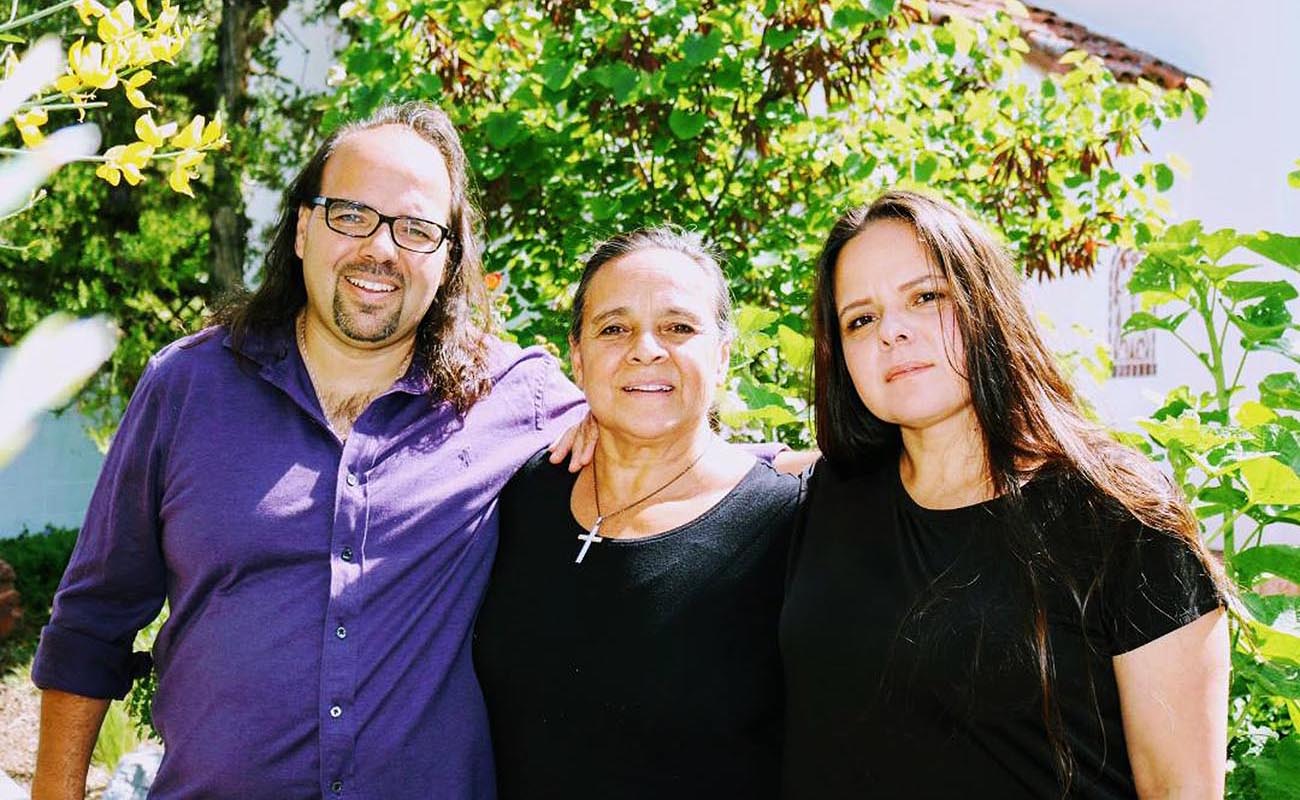
Across the board, flamenco professionals are struggling to find their way through a maze of artistic, economic and social challenges. Marisol Encinias, Executive Director of the Alburquerque Flamenco Festival, is responsible for the longest-running flamenco festival outside of Spain. In this interview she explains how this major event is dealing with dramatic conditions.
In the world of flamenco, the Alburquerque Festival is well-known. To what extent do Americans in general know about the event?
Flamenco artists certainly know our festival. I think it’s becoming better-known in the United States, but we need to continue to expand awareness. I hope this edition will make it possible for more people to see the type of work we do.
The 33rd Alburquerque Flamenco Festival includes over 50 featured artists, as well as a long list of instructors and speakers. How is this going to happen?
Everything will take place online. Individuals can purchase viewing and class passes. We’re using Vimeo for performances and Zoom for classes. Lectures are free and will be streamed through YouTube and Facebook live. We expect many people to tune in for this special edition of the festival in 2020, and consider coming to join us in 2021 to experience it live.
The CDC continues to recommend caution about gatherings of large groups, particularly for events such as concerts and recitals. This obviously affects the focus of the Alburquerque flamenco festival. What kind of venue, is now viable for the presentation of flamenco shows?
Artists from Spain have been recording from home or in small groups without an audience. Members of Yjastros, our large resident company, have been performing and recording in open spaces in Albuquerque in order to be able to social distance during performance.
Are there any guidelines about artists social distancing or keeping to other protective measures during a performance?
I don’t think we’ll see dancers performing in face masks. It might even be dangerous, depending on how strenuously someone is dancing. Possibly guitarists could wear a mask. It’s difficult to distance on stage, but it can be done.
Is the tablao expected to reopen?
Unfortunately, it’s not safe to work in tablaos and theaters yet. For now, we have to share in this format. In the United States it’s unclear when such venues will be allowed. Our tablao in Albuquerque is not currently open.
Does the National Institute of Flamenco see on-line performance as a temporary solution, or is this part of the “new normal”?
I hope temporary! Nothing replaces live interaction. I can’t wait to go back to “normal” performance. It’s my hope that artists can share flamenco for this edition, even if that means it’s more informal. Connections are being made, artists share and viewers receive, even if it has to be through a screen for now.
Has economic support, whether institutional or private, been forthcoming as in other years?
We’ve been able to move forward with this year’s festival because of support. For this 33rd edition we have funding from the National Endowment for the Arts as well as local Government support from the City and County. This is making it possible for us to do the festival online, and we are very grateful. It’s taken many years to be able to secure this support. I hope these entities, as well as Spanish ones, will help us continue to promote flamenco in a way this art-form deserves.
Do you think flamenco will evolve differently than if there had never been a pandemic? Will fewer people be interested in flamenco as a career?
Here in the U.S., and it seems in Spain as well, people are demanding to be heard. I hope everyone can take a step back and hear what others have to say. Workers need to be supported and respected. People are making noise now, and it’s a good thing.
I believe that one decides to be an artist or chooses flamenco as a career if they come to the realization that this is what they have to do. Flamenco for them will not suffice as a hobby. The same goes for dancers, musicians and artists in other genres. Most artists are incredibly smart and industrious, they could surely be successful in another field, but being an artist is how they see themselves. This pandemic may weed people out sooner, but I believe those who are meant to work in this career path will stick with it and will come to feel that their work is valued and supported in society.
What about public attitudes? Does performance art still seem viable? Do you think people will be reluctant to attend small indoor shows with or without distancing and other precautions?
I believe that many people will be reluctant to attend indoor performance: it’s about 50/50. Half the people ask why you’re not opening up, and the other half say don’t open up, or at least we won’t go. At this point my take on it is we can’t assure people it’s safe until we feel it’s truly safe, we can’t continue with pre-covid business as usual. That means we have to be creative and remind people why art and flamenco are important and necessary.
The National Institute of Flamenco has always had social and educational goals beyond the artistic value of performance. Could you elaborate on this?
My mother and grandmother began building the work we do in flamenco by building a community. My grandmother had a school and performed. My mother worked as a dancer and began teaching at the University, founding the festival 33 years ago in order to educate the community and herself about flamenco. She was teaching, but wanted to be able to show people in the U.S. some of the world’s best flamenco. My brother Joaquin and I began to join her in moving the work forward. We have a non-profit arts organization dedicated to the presentation and teaching of flamenco. People of all ages and abilities study in our school.
We produce our annual festival where we continue to present quality flamenco artists here in Albuquerque, New Mexico. We also run the above-mentioned tablaos in Albuquerque and Santa Fe, and have a professional repertory company with my brother Joaquin as its Artistic Director. The company performs in theatre seasons and has in its repertory archive works created by Joaquin and many of Spain’s top choreographers. My mother helped to develop the flamenco program of study at the University of New Mexico where a student can get a degree in dance with specialization in flamenco. It’s an incredible program with guest teachers in residence each spring and fall semester, many of Spain’s best artists.
Information about the Alburquerque Flamenco Festival: http://www.nifnm.org/


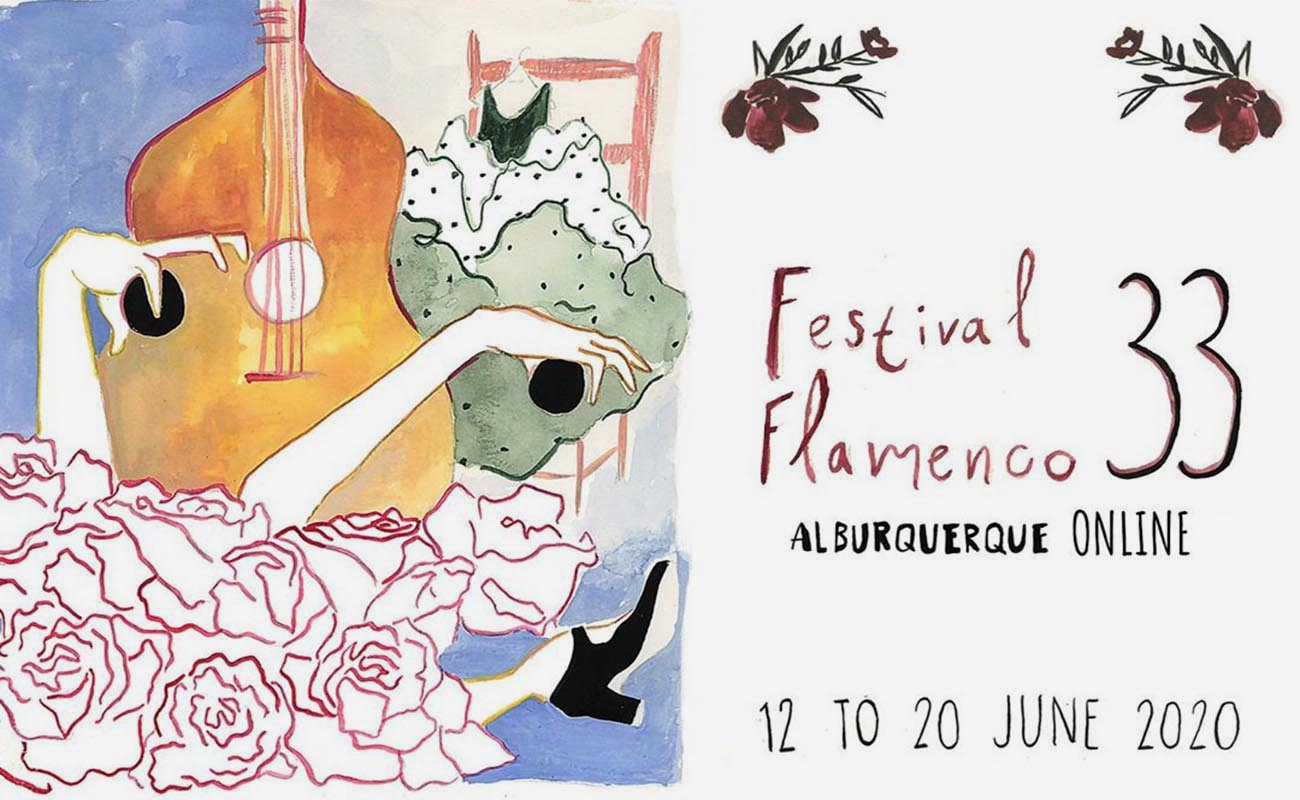
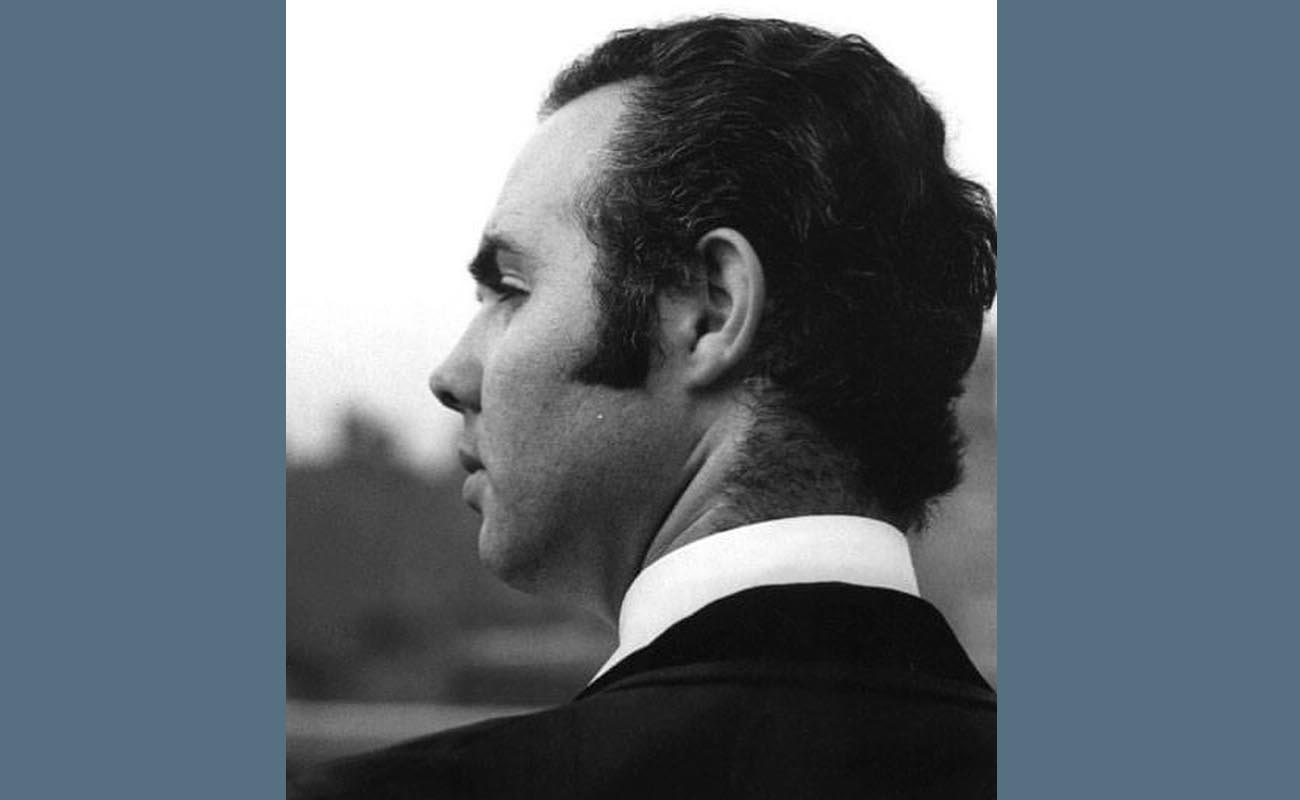
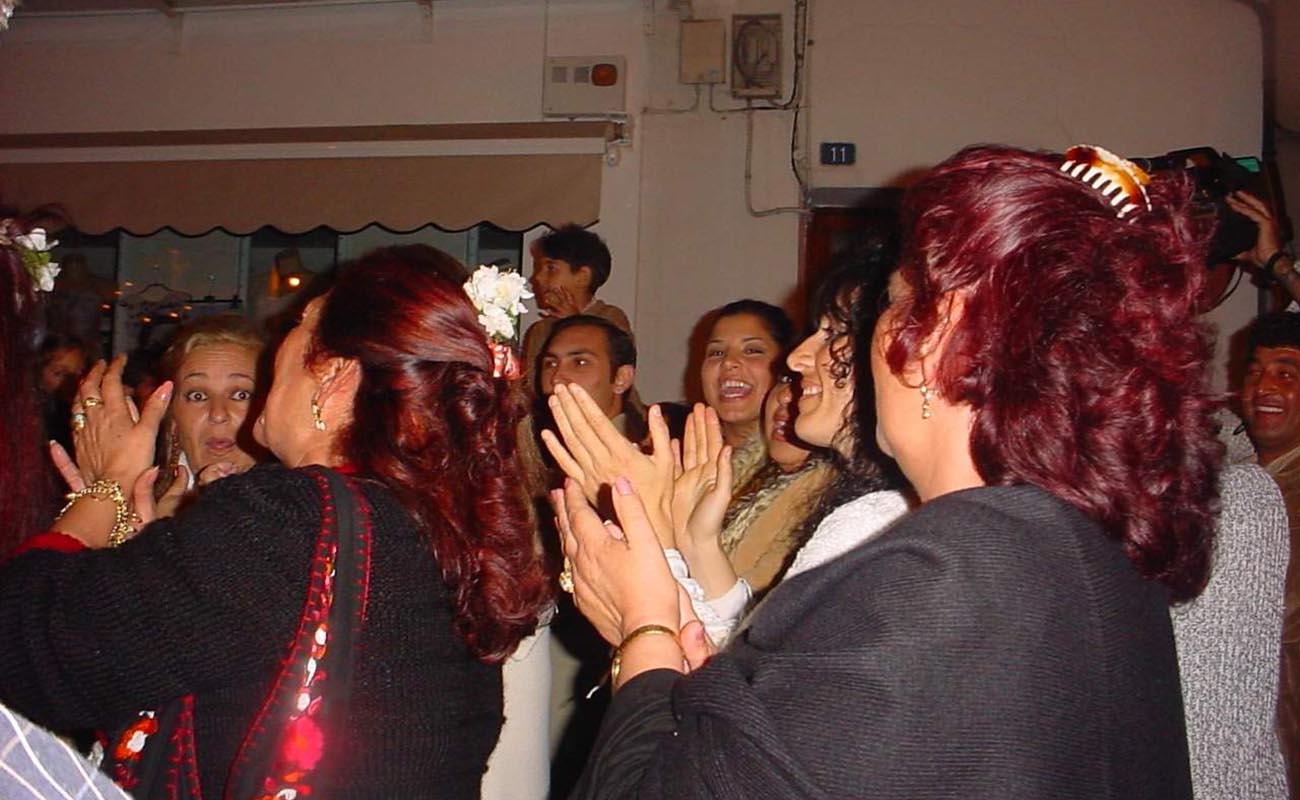
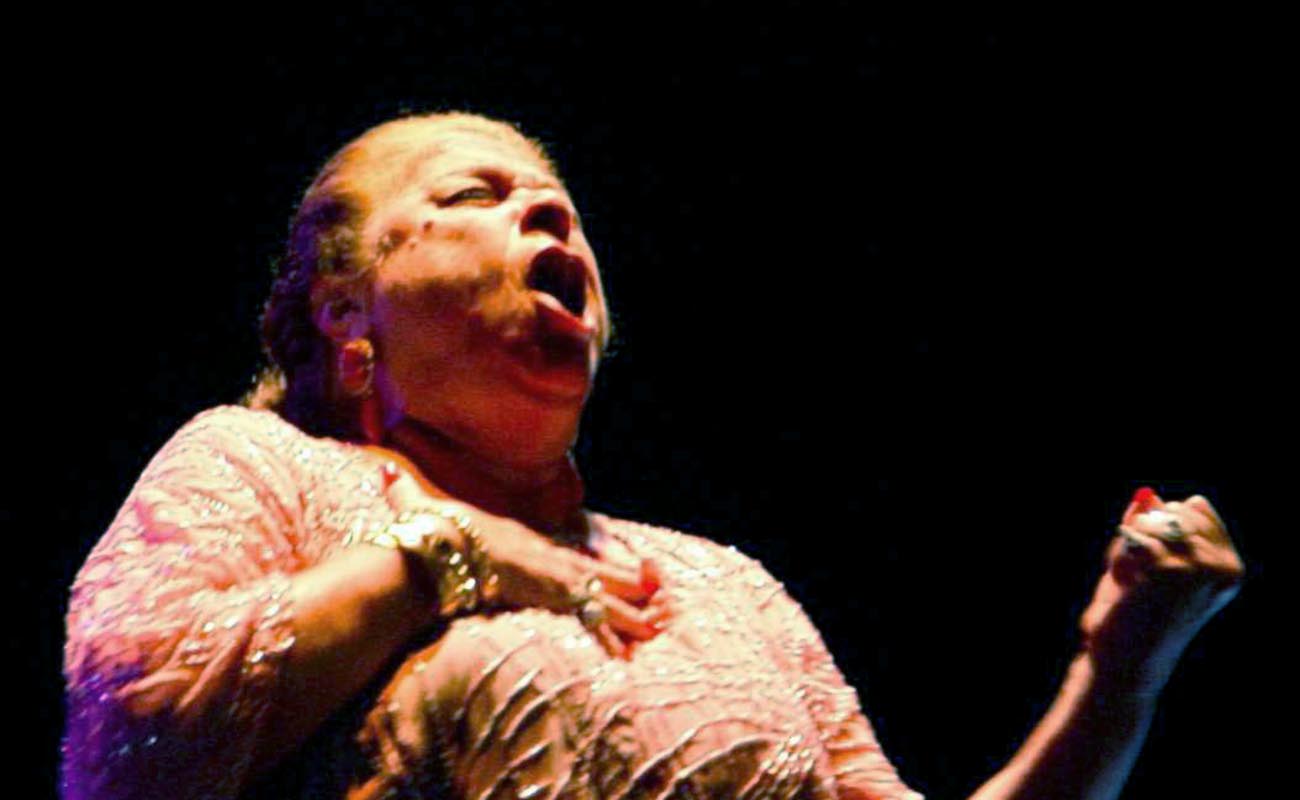
Pedro N Partida 10 June, 2020
I will do my best to attend something. I miss the Festival and hole you are all well. In abrazo fuerte.